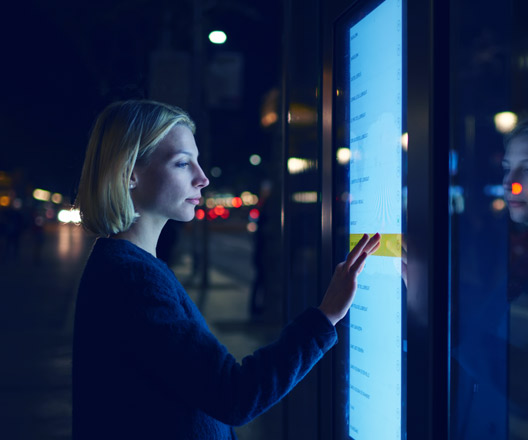
Listen to this blog
In an era where fashion mirrors the changing seasons in its dynamism, AI emerges as a powerful contender. The fusion of AI with fashion, particularly Generative AI, is reshaping the industry in unprecedented ways, giving birth to a wave of opportunities and innovations. From trend prediction to redefining customer interactions, let's embark on a journey through the captivating evolution of fashion with the prowess of Gen AI.
AI's Impact on the Fashion Industry
With personalization emerging as a key driver of customer satisfaction, the market landscape is shifting tides. The convergence of data-driven insights with AI now enables retailers to better understand consumer behavior, leading to more targeted marketing strategies, improved inventory management, and better customer service. The numbers tell a compelling story of AI's impact on the fashion industry. A report by Globe Newswire suggests that the global market for Artificial Intelligence (AI) in Fashion is projected to reach a size of US$16.3 billion by 2030. Moreover, according to Forbes, nearly two-thirds (64%) of business owners believe AI will improve customer relationships.
Runway to Real Life: Real-world use cases of Gen AI in Fashion
The world of fashion is witnessing an AI-driven makeover that's turning heads and capturing hearts. Here’s an outline of various fashion industry segments catching the ripple effect of Generative AI:
Virtual Dressing Rooms
Imagine trying on outfits virtually before making a purchase. ASOS, a global fashion retailer, utilizes AR and AI to create virtual dressing rooms, allowing customers to visualize how clothes fit and look on their bodies in the comfort of their homes.
Sustainable Fashion Design
Beyond fashion's aesthetics, AI is playing a pivotal role in fostering sustainable practices. From optimizing supply chains to reducing waste through accurate demand forecasting, AI is helping the fashion industry become more eco-friendly. Sustainable fashion startups are using AI to source ethical materials, track a product's lifecycle, and even recycle old garments into new designs. These practices not only align with consumer demand for ethical practices but also position brands as champions of environmental responsibility. Zara's efficient value chains and Alibaba's AI-powered manufacturing ecosystem are gaining traction in smart production. Alibaba’s system groups items of the same material from diverse orders and brands for collective processing. Its AI-driven fabric cutter maximizes cloth utilization, and every raw material gets a unique ID and QR code for traceability.
Retailers Reimagined
AI-powered algorithms enable retailers to analyze vast data sets and predict trends, leading to smarter inventory management and more informed decisions on what to stock. eBay's ShopBot, powered by generative AI, helps customers sift through its vast billion-plus listings to find the best deals. Users can interact with the bot using text, voice, or photos, and the bot engages in further conversations to refine its recommendations. Retailers can now be empowered to make the best of customer data and enhance personalization through Generative AI to foster brand loyalty.
Predicting Fashion Trends
AI's ability to analyze vast amounts of data has revolutionized trend prediction. By scouring social media, runway shows, and fashion publications, AI algorithms can identify emerging trends and consumer preferences in real-time. This data-driven insight empowers brands and designers to create collections aligned with the current zeitgeist, reducing the risk of producing items that might not resonate with the market. This not only improves inventory turnover but also helps brands stay ahead in a highly competitive industry. A Sweden-based multinational clothing brand, H&M uses AI algorithms to analyze social media posts, runway images, and even weather forecasts to predict upcoming fashion trends. This insight helps them design and stock products aligned with consumer preferences.
Supply Chain Enhancement
Retail giants like Zara are using AI to forecast demand accurately. This has led to minimized overstocking, reduced waste, and, ultimately, more sustainable practices. Powerful simulation tools such as CLO 3D allow designers to create and visualize digital garments in a realistic 3D environment alongside insights that indicate waste reduction and required material quantities before the designs go into production.
Fashion Design Innovation
The creative process is evolving as AI assists designers. Brands like IBM and Marchesa collaborated to create the world's first AI-generated gown, blending technology and haute couture. As this harmonious blend reverberates across the landscape of fashion, a parallel climax of change unfolds., The era of mass production is making way for customization. Gen AI is facilitating this shift by allowing customers to design their own unique pieces. Customization platforms leverage AI to guide customers through the design process, offering choices of fabrics, colors, patterns, and styles. This level of personalization empowers consumers to express their individuality while ensuring that the final product meets their exact specifications. Brands like Nike have embraced this trend, enabling customers to design their own sneakers using AI-powered tools.
Customer-Centric AI Personalization
Luxury brands like Gucci, Burberry, and Louis Vuitton are incorporating AI-driven chatbots into their platforms, offering personalized recommendations and tailored customer service. A study by Salesforce reports that 64% of consumers expect tailored engagement based on their past interactions with a brand. By understanding individual needs, these AI assistants curate outfits, accessories, and entire looks, making the shopping experience more interactive and enjoyable. This level of personalized attention not only boosts customer satisfaction but also encourages repeat purchases and brand loyalty. Another brand, sailing with the waves, Stitch Fix utilizes AI to create unique user profiles, providing personalized styling suggestions and improving customer satisfaction through individualized. For example, Khroma is a tool that allows a trained algorithm to create genuine and personalized color palettes. Similarly, Colormind enables the preparation of creative color palettes based on preferred samples from movies, photographs, artworks, etc.
In conclusion, the fusion of Generative AI and fashion is more than a technological evolution—it's a revolution. With AI-backed personalization and trend prediction at the forefront, the industry is undergoing a transformative change. At the frontline of these initiatives, Visionet is introducing FashionGPT. This game-changing AI-powered fashion assistant will revolutionize how retailers connect with their customers, delivering a level of personalization and trendiness like never before. Explore this innovative solution and our Power Platform expertise at MPPC 2023 with Visionet’s exclusive “FashionGPT: Breaking Boundaries with Generative AI” session scheduled for Thursday, October 5 at 1:00 PM PDT.
Register now and get an exclusive discount using the code VISIONET100.




